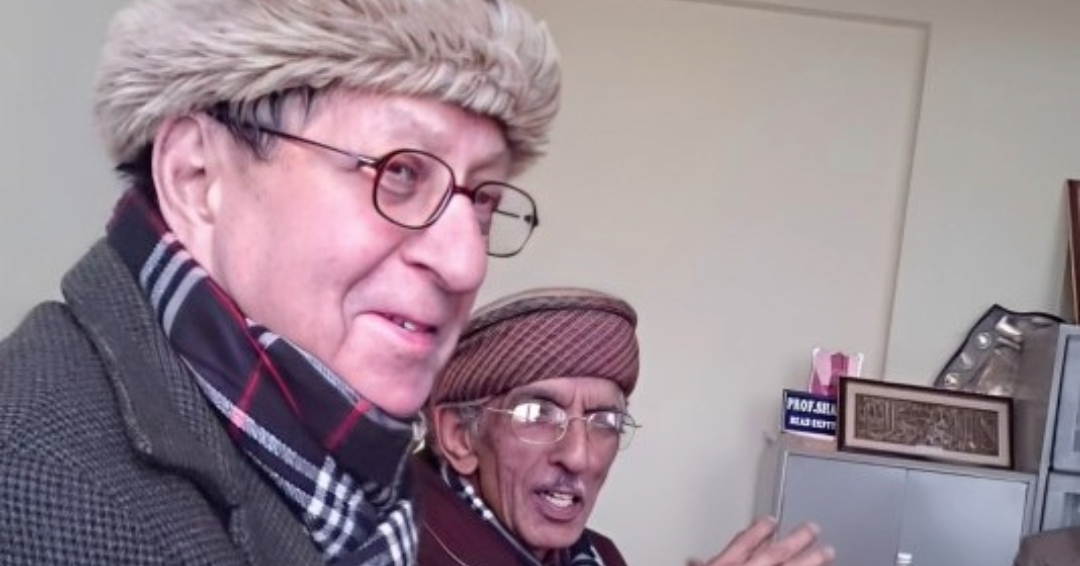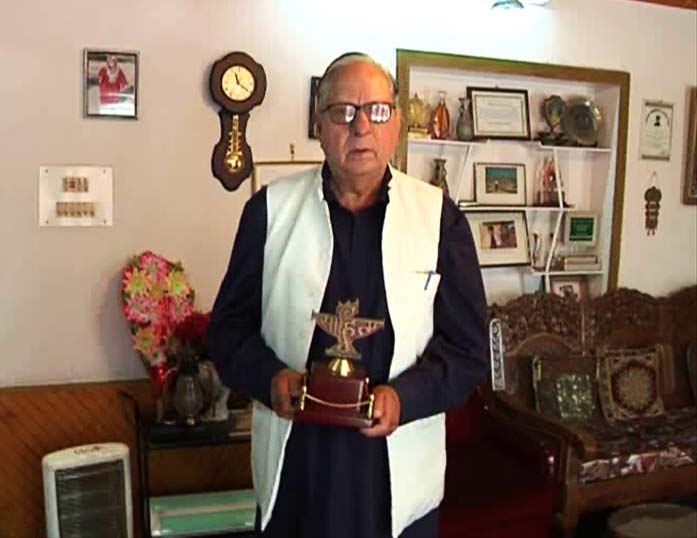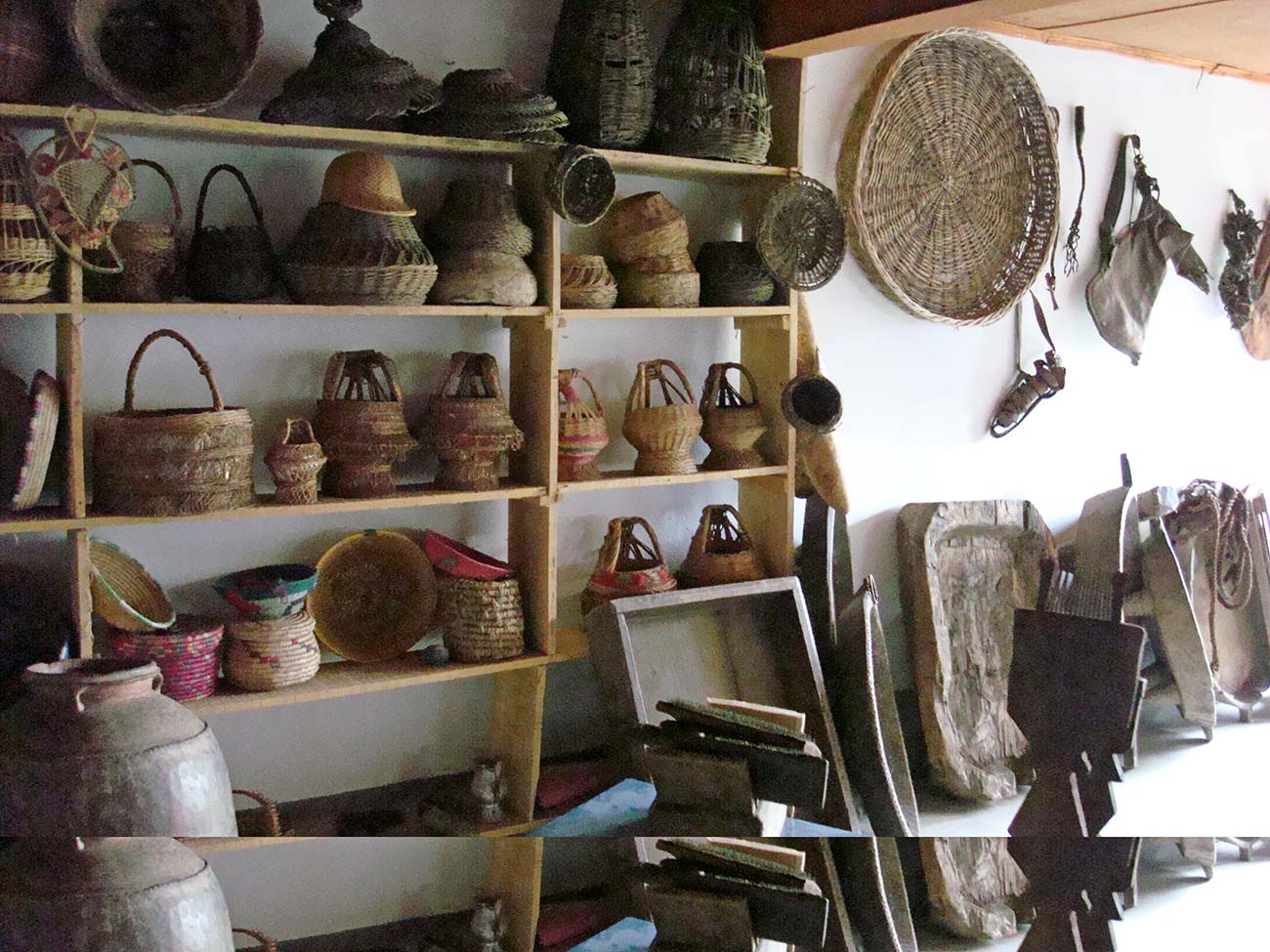In the demise of poet and scribe, Ghulam Nabi Khayal, Kashmir lost a witness to the history of a crucial era. His 32 books and countless pieces of reportage, however, shall remain a vital source to the new generation, reports Syed Shadab Ali Gillani

A profound sense of loss engulfed Kashmir’s literary community as they took Ghulam Nabi Khanyal (born Mir), a luminous for his eternal rest. With 32 published books to his name, Khayal left an indelible mark on the world of letters. He was one of the few Kashmir scribes who would be a political activist and a poet at the same time.
Khayal’s literary journey began in his mother tongue, a humble yet promising start that would later propel him to unimaginable heights. He ventured far beyond the horizon of expectations, crafting exquisite poetry in Urdu, Kashmiri, and English, leaving admirers in awe of his versatility and poetic mastery.
Ancestry
Khayal was born in Hawal, a city locality, where tradition and heritage have long thrived. It was there where his grandfather, Ghulam Muhammad Mir, nurtured a thriving Shawl-making business. He had established a Shawl factory within the confines of his home. It was in this rich tapestry of history, culture, and familial unity that Khayal’s poetic journey began, taking him on an odyssey of literary brilliance.
Khayal was born on March 4, 1939, to Jalaluddin Mir and Talja Begum. His early life was shaped by the modesty of his parents. Although his father lacked formal education, his skill in the craft of carpet engraving was nothing short of remarkable. He devoted his life to his profession. It was, however, Khayal’s mother who left indelible imprints on his upbringing. Her teachings encompassed the virtues of politeness, gentleness, sociability, and realism, becoming the guiding principles of his life.
Khayal’s poetic journey began during his childhood, a period characterised by the aroma of liberty and a relentless quest for knowledge. He took his first steps in education at the historic Islamia High School in Rajouri Kadal, situated just a stone’s throw from his home. In the milieu of Kashmir, this institution was one of the three major schools, alongside Biscoe School and National Public School in Srinagar.
Khayal, displaying an insatiable appetite for learning, earned distinction in his matriculation examination. His education at Islamia High School was under the tutelage of remarkable teachers, including Pandit Raghunath, Maulana Nooruddin, and Maulana Ghulam Nabi Mubarki, who imparted the wisdom of Arabic. The influence of his teachers in moulding his intellectual prowess was profound, instilling in him a deep appreciation for learning.
Literary Awakening
Khayal shared the spark of his literary career ignited during his ninth standard when Mubarki posed a simple question: “Is anyone interested in poetry?” Khayal’s emphatic “Yes” marked the inception of his poetic journey. Reading the works of Haali and other poets, he found inspiration and a kindred spirit in the world of verse.
Mubarki told Khayal to write his own verses and gave him a poetic meter to follow. In response, the young Khayal penned these lines, Jawani mujhe hai bohat hi Azeez, which left Mubarki impressed, thus beginning the ascent of a literary luminary in the making.

Post-matriculation, Khayaal started working at Radio Kashmir Srinagar as a news reader. He stood out among 19 applicants, thanks to his voice and diction. He refined his news reading skills, drawing inspiration from the renowned newsreaders on the other side of the divide, Shakeel Ahmed and Anwar Bazad.
While in Radio for around four or five years, Khayal found himself irresistibly drawn back to his first love – poetry.
Khayal’s early literary journey began with Delhi’s weekly film magazine Chitra during his time at Islamia High School. This magazine ignited a profound passion for literature within Khayal, ultimately serving as a guiding light throughout his life.
In an interview, he acknowledged that he started his literary quest after writing a short story (afsana), and “not many people are even aware that I used to write afsanas.” He sent his stories to the magazine under an anonymous pen name. “I used to change my pen name very often, the way people are changing political parties these days,” he added with a smile.
Besides these, he also started writing in Kashmiri language for different magazines. He also translated various works like poetry and stories as he believed that translating literary works connects cultures and makes them more comprehensible to the locals of various places. He has also translated the famous The Valley of Kashmir by Walter Lawrence from English to Urdu which was a well-received book.
During his lifetime Khayal Sahib went on to meet some legendary poets of the Urdu language like Firaq Gorukhpuri, Jigar Muradabadi, and others.
Khayal’s student years coincided with a burgeoning literary movement that significantly influenced Khayal’s trajectory. In 1954, he became a part of the progressive writers’ movement. Initially, Khayal began honing his craft in the Kashmiri language, later branching out to explore Urdu and English literature as well.
Setbacks
On February 23, 1958, Khayal found himself thrust into Kashmir history as he aligned himself with a political movement determined to usher in transformative change within the then state of Jammu and Kashmir. Khayal’s commitment led to his subsequent arrest and swift transfer to Central Jail in Srinagar, where he would spend the following two years. Little did he anticipate that this pivotal chapter of his life would set the stage for a remarkable journey marked by unwavering resilience and extraordinary accomplishments. Khayal had described it as “a moment of profound gratitude”.
“My ability to produce a translation of Omar Khayyam’s work would not have been possible without my time in incarceration,” he has said, in an apparently self-recorded interview. “Though I possessed only rudimentary knowledge of Persian, my time in jail introduced me to two Persian teachers, Maulana Mohammad Sayed Masoodi and Hisamuddin Banday.”
It was Masoodi who brought him the Khayyam book, which eventually became the foundation of his translation work. He fondly remembered Maulana Masoodi’s pride in his translation efforts, and the resulting book gained widespread acclaim. “It was an incredible feeling when respected figures like Mir Ghulam Rasool Nazki and Ghulam Nabi acknowledged that, in many instances, my translations surpassed the original works of Khayyam,” Khayal recorded.
“In Kashmir’s literary ecosystem, his works have been of great influence, especially his translation of Khayyam’s poetry,” Manzoor Unjum, editor of Uqaab newspaper, said. “He has translated Persian into Kashmiri beautifully. He was a very successful writer and poet, and his body of work is very rich. He has translated Khayyam’s over 200 rubaiyaat from Persian to Kashmiri which is considered one of his biggest achievements.”
Reasons for Arrest
On his detention, Khayal has written and left recorded conversations as well. “From a legal perspective, I was implicated in a murder case. The story of this murder case was a long and convoluted one. After Sheikh Abdullah’s speech at Dargah Hazratbal, a dispute erupted between two opposing parties – whose names I prefer not to mention. Unfortunately, during this altercation, a man named Mohuiddin, who was a servant of Bakshi Sahib’s brother, lost his life. Many individuals, including those from, political conferences, and myself and many others, were apprehended and incarcerated on murder charges,” Khayal has stated.
After Khayal came out of the prison, he later said, “Bakshi personally extended his apologies to me” and later “assisted me in securing a position within the Jammu and Kashmir Academy of Art, Culture and Languages.” He added: “It is quite remarkable that Bakshi, who had once considered me a murderer, facilitated my employment. In this regard, I hold Bakshi Ghulam Mohammad in the highest esteem. I would also like to express my gratitude to Mirza Kamaluddin Shaida, the first secretary of the academy, who recognised my potential.”
Into Journalism
Later Khayal set his sights on a new path – journalism. Along with Abdul Aziz Baharoon and Noor Muhammad Roshan, he revived the publication of Kong Posh magazine first published around 1949 by a group of progressive writers. In 1964, Khayal assumed the editorship of the Urdu weekly Mahaaz, an official organ of Plebiscite Front. By the end of 1964, a ban was imposed on the magazine, as its content was deemed contrary to the Qur’an.
Then, Kashmir was experiencing political and social upheaval, and literacy was limited. Consequently, Khayal’s newspaper Watan, also launched in April 1964, was closed in 1968. Later, Khayal established his Urdu weekly Iqbal in 1968, which later transformed into a daily publication. Its operations stopped in 1977. In 1977 he joined India Today magazine.
Besides, he served as a visiting faculty to the University of Kashmir’s journalism department for two years.
In the 1990s, when the militancy broke out and Kashmir reportage was in demand everywhere, Khayal wrote for the British newspaper The Guardian, Time magazine, The Association Press and United Press International (UPI). He was also reporting for various publications in Pakistan. In 2003, he launched Voice of Kashmir, a weekly newspaper.
The Family
In 1970, Khayal married Rafiqa, the daughter of Fateh Kadal businessman, Ghulam Hassan Wani. She was a teacher.
They have two sons and a daughter. Kamran, their elder son, pursued a career in computer engineering and now holds a senior position in a renowned software company. Saba, their daughter, is a medical doctor and is settled in the USA. Irfan, the youngest of the three is also computer engineering and is currently working in Dubai.
Contributions
Khayal was an artist, poet, and writer whose contribution was immense. He has 32 books to his credit, which include prose, poetry, literary criticism and translations. His books include The Burning of a Paradise, Chinar Rang, Fikr-e-Khayal, Karvaan-e-Khayal, Khayalat, Khayal-e-Qalam, Pragaash, and Gaashir Munaar.
Khayal credits Will Durant’s book The Story of Civilization for inspiring him and igniting his imagination. “I wrote articles on the greatest poets of the world. Poets from different languages, whose remarkable verses I had encountered within the pages of Durant’s book,” he has said. He delved into the realms of great poets from various cultures, such as Homer in Greek, Virgil in Latin, Dante in Italian, Imr-ul-Qais in Arabic, Hafiz in Persian, Tagore in Bengali, Iqbal in Urdu, Pushkin in Russian, and Goethe in German.
The remarkable aspect of Khayal’s endeavour was his mastery of the languages. This feat was a testament to his unwavering commitment to bringing the world’s literary treasures to the people of Kashmir. Perhaps even more awe-inspiring was the sheer magnitude of this work which spanned 11 volumes, which were published in 11 years.
In recognition of his extraordinary contribution, this collection was bestowed with the Sahitya Akademi Award in 1975, an accolade that solidified his place in the pantheon of literary greats. Later in 2015, he relinquished his award in protest of the ill-treatment of minorities in India.















